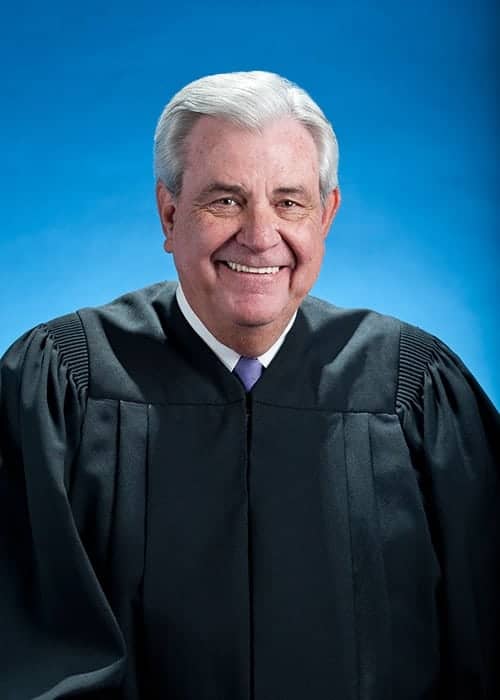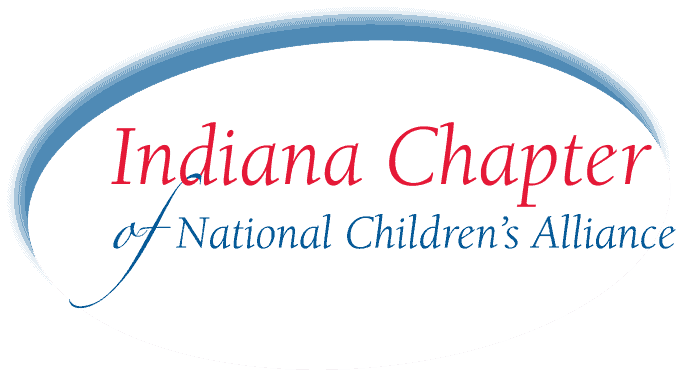In the mid to late 1980s Michael P. Barnes was serving as the Prosecutor for St. Joseph County, Indiana. It was a position voters would entrust him to hold for 20 years across 5 elections. In 2000 Barnes would be called upon by Gov. Frank O’Bannon to serve on the Indiana Court of Appeals. In his role as Prosecutor, Barnes was investigating any available option to help protect children during disclosure and investigation of abuse. As a member of the National District Attorney Association, Barnes began investigating the early ideas of Child Advocacy Centers. This would later lead to the establishment of The CASIE Center in South Bend.
Says Barnes, “As we watched trends at the time 25 years ago, we thought it was clear children ought to have a place to go where a trained person could administer questions admissible in court. And sure, as a Prosecutor, there was another motive. Kids would often inadvertently change their stories each time they had to relay an incident. It’s just inherent. We needed consistency.”

That early work at The CASIE Center has served the community immensely, but without much having been written or established yet, staff and prosecuting attorneys found themselves at odds with law enforcement and defense attorneys early-on. “We ran into some skepticism,” says Barnes, “Both from police who were used to a certain way, and from some defense counsel claiming we were leading these kids to conclusions. We got to a point where we’d say to them, ‘You can come down and watch the interview with us’. We also got out and did some training, but options were limited. Largely, we had our own experiences and modified based on trial-and-error and honed it in.”
“Nothing ever persuades police agencies more than success,” adds Barnes. “When they saw that their cases that heretofore were long shots and they now had improved information, testimony, and evidence, they really got on board. It really improved chances for a successful trial which helped lead us to people so they could not continue to hurt a child, bottom line.”
Over the last 2-3 decades, Barnes can quickly recall two cases that stand out. Early in the establishment of The CASIE Center, a young person was interviewed to talk about “implements, salve, and other gross stuff.” That child’s detailed testimony, unlikely to have ever been received without a trained interviewer, led police with a search warrant to those items.
The other case he recalls involved Alan Matheney and dovetails with Barnes’ other work and passion, the Family Justice Center in South Bend. Matheney was released on a work detail and had an eight-hour pass from the Department of Corrections in 1989. He was picked up by his mother in Indianapolis and then drove to Mishawaka where he murdered his ex-wife after breaking into her home and chasing her into the street. His two daughters and multiple neighbors looked on. This case is the reason Indiana’s laws now require victims to be informed of an inmate’s release. Matheney was executed in 2005.
Not unlike investigating child abuse, “Women came in to the Center beaten up and scared. Come time for court they’d disappear or not be there. We tried going at it systemically, but it’s still difficult. We did work to get a victim network out there, we setup shelters, and we provided women with cell phones they could use to call 911 to protect themselves, but it’s so hard.”
Looking ahead for CACs and prosecutors, almost any judicial officer will tell you that existing systems and caseloads are inundated with demands. It’s making all sides of a case more frustrated. Barnes says limits on hearsay have made cases more difficult for prosecutors, and often causes families to become frustrated with the judicial system. “But, I tell people all the time that done well is better than done hastily and not so well. As the process proceeds everybody carries this burden from our constitution, that people are innocent until proven guilty, that there are rights that have to be observed. I always say if that was your son, daughter, uncle, etc. that were charged would you not want those rights? Famous last words if they say, ‘Well, they’d never do that.’ Those rights have to be protected for us all. It’s true many if not most who are accused are not Mother Theresa and are not people who engender warm and fuzzy feelings. But nobody’s rights get trampled.”
Today, Barnes is proud of where Indiana and CACs have come. “I think we gained an acceptance with the defense and the Bar that we are going to do this right. We made sure everyone hit acceptable norms for soliciting information. Plus, in centers across the state staff like Carolyn Hahn, who is the epitome of a dutiful and smart person and [Indiana Chapter Director] Jan Lutz, who is someone you can always trust and is dedicated to children…it can’t be overstated what good work people like that do.”
Barnes says CACs still need a lot of support. “They need the continuing support of the community, they need good press, and we all need to understand we have a duty to children.” Barnes continued to comment that children are among our most important assets. “They should not live in fear of living as sexual objects or punching bags. They all grow up, so we have a duty to them and ourselves for when they become adults, I truly believe that.”

